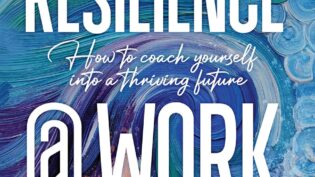Finding Your Future: Exploring Different Educational Paths for Career Opportunities
By: SmallBizClub

In today’s rapidly evolving job market, the right education can set the foundation for a successful career. Whether it’s acquiring specialized skills, gaining knowledge in a chosen field, or exploring different sectors, the path we take towards our career goals significantly shapes our professional life. While some may opt for traditional college degrees, others might find their calling through vocational training or online learning platforms. Keep reading to explore the different educational paths for career opportunities and how they can lead to fruitful employment.
Exploring Different Educational Paths for Modern Careers

Choosing the right educational path can shape one’s career, and traditional universities are no longer the only option. Programs like CDL and HVAC training offer practical skills for in-demand trade careers, enabling quicker workforce entry without the time and cost of a traditional degree. Similarly, online platforms provide flexible courses in programming or digital marketing, making education accessible to more people.
Skill-focused programs like coding bootcamps and intensive sommelier training allow learners to gain specialized, career-ready knowledge in a short time. These immersive options cater to industry needs, providing valuable credentials for career advancement in today’s competitive job market.
The Role of Vocational Training in Skill Development
Vocational training is a crucial skill development tool for individuals seeking quick entry into the workforce. These programs provide hands-on experience and practical skills for various careers, offering job placement assistance upon certification. As industries adapt to new technologies, vocational training centers update curricula to prepare students for the job market.
The apprenticeship model allows students to earn while learning, giving them a competitive edge in long-term employment. This also benefits employers by providing highly-skilled workers with practical experience. Vocational training also supports local industries and economies by creating a skilled workforce in fields with high labor demand, ensuring economic growth and personal career advancement.
Traditional College Degrees Versus Contemporary Online Courses
The choice between a traditional college degree and online courses can significantly impact a person’s career path. College degrees offer a structured curriculum, internships, and networking opportunities, but with rising costs, many are seeking alternatives that offer flexibility and affordability.
Online courses offer targeted learning experiences without the financial burden or geographic limitations, with interactive technologies like discussion forums, virtual labs, and real-time feedback. They also include up-to-date industry knowledge and trends that traditional curricula may not include. Online courses also allow for continuous skill development without a break from the career, which is crucial for long-term career growth and competitiveness in today’s job market.
How Apprenticeships Provide Real-World Experience

Apprenticeships are a method of learning that combines on-the-job training with classroom instruction, enabling in-depth knowledge transfer from experienced professionals. They are effective in industries like construction, manufacturing, and tech-focused fields. Apprentices develop soft skills like problem-solving, teamwork, and time management, contributing to a deeper understanding of the work environment.
Apprenticeships offer students a wage while they train, making education more sustainable and providing pathways to well-paying jobs. Employers also benefit from investing in apprenticeship programs, as they ensure higher craftsmanship and reduce costs associated with hiring and training new employees. Apprenticeships create a pipeline of talent well-versed in a company’s unique operations and culture.
Lifelong Learning and Continued Professional Development Opportunities
Lifelong learning is crucial for career success in today’s fast-paced world. The concept of once-and-done education is obsolete as rapid industry changes necessitate constant learning and adaptation. Many professions now require members to engage in ongoing education to maintain their licenses and certifications, ensuring they remain knowledgeable about the latest best practices, technologies, and ethical standards.
Lifelong learning can take various forms, such as attending workshops, conferences, pursuing higher certifications, and accessing educational content through online platforms and professional networks. Maintaining a proactive approach to learning can be fulfilling, granting professionals a sense of personal achievement, keeping their minds sharp, and reinforcing their passion for their work. Being a continuous learner can significantly broaden career opportunities, ensuring adaptability and resilience in a dynamic job market.
Altogether, the landscape of educational paths is diverse and rich with potential for those seeking growth and new career options. Whether it’s through vocational training, traditional degrees, contemporary online courses, apprenticeships, or ongoing professional development, the opportunities for learning and succeeding in today’s job market are vast. The choice of educational path should align with individual career goals, lifestyle preferences, and the evolving demands of the global economy.
858 Views












